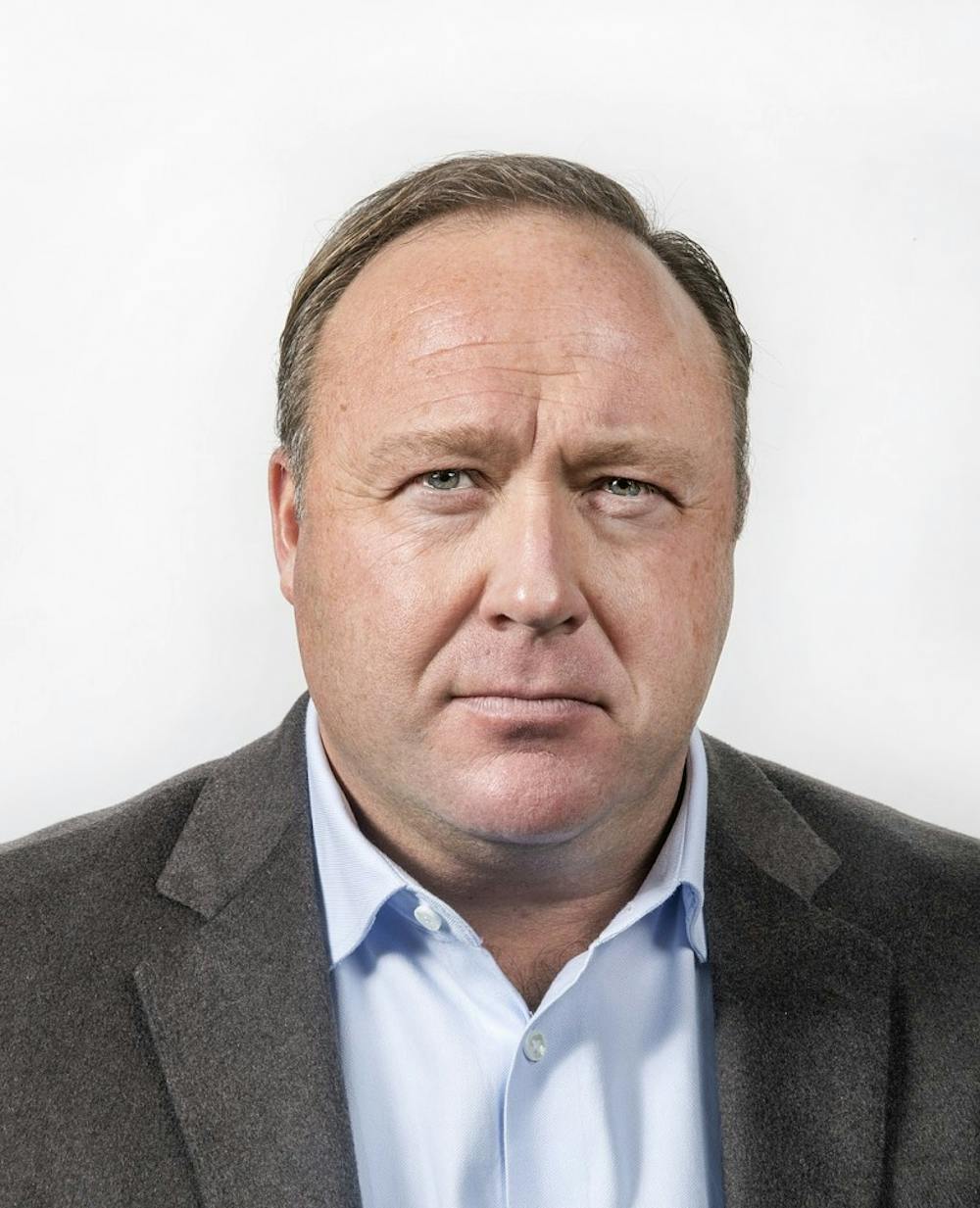On March 21 through March 23, Alex Jones hosted the “Save the First Amendment: Stop Big Tech Censorship 50-Hour Emergency Broadcast” on his website, Infowars, in response to Apple, Facebook, YouTube, and Twitter banning Jones and his associated accounts from their platforms. The tech companies say the ban was in an effort to cut down on misinformation campaigns as well as a response to Jones’s clearly violating user policies.
Jones has long been known for his far-right website, Infowars, which holds a self-proclaimed mission of protecting the “spirit of humanity” and the freedom of the American people. Jones sees himself as a news source capable of cutting out the agendas and malicious intentions present in the media today and prioritizes “exposing the scientifically engineered lies of the globalists and their ultimate goal of enslaving humanity.”
On his website, Jones claims his “truth-bringing” company has been repeatedly targeted over the years. He also said Infowars is “merely the canary in the coal mine when it comes to the leftist authoritarian censorship coming our way if good people stand idly by and do nothing.”
The only problem is, it’s not censorship.
Since late last year, though, one of his larger campaigns has been about the importance of not only protecting freedom of speech but saving it from extinction. He believes his banishment from certain social media platforms is a clear violation of his rights — such an egregious violation that he needed to devote 50 hours to it — but he fails to see how mistaken he is.
The tech companies who banned him say that he’s directly glorified and encouraged violence — Jones was briefly suspended from Twitter after he tweeted a link to a video calling for supporters to get their “battle rifles” ready against the media and others, for example.
However, Jones cannot complain about being banned when he clearly violated outlined rules. Twitter stated that Jones violated aspects of its “Abusive Behavior” policy and banned him due to content that included Jones repeatedly degrading Muslims, attacking people on the basis of gender identity, and engaging in harassment.
It’s not a confusing case of censorship, it’s a case of not following the rules. As a private company, and one that requires users to sign off on terms of service before using their product, Twitter is not mandated to accept speech they deem excessively inappropriate according to community standards.

Conflating freedom of speech with the necessity of private entities to uphold their own rules and expectations is dangerous. Doing so blurs the line between government involvement and private action. And while social media platforms have become extremely accessible forums for public thought, they still remain private companies with the right to push their own self-created rules for a product. If Jones wants to campaign for the regulation of such forums by the government, and the consequent ability to monitor these sites according to the constitutional boundaries of the First Amendment, I would support that endeavor far more than his current ideas.
Furthermore, I recognize the legal nuances of free speech and its inapplicability, at times, to the private world. The Constitution forbids Congress or the government from “abridging the freedom of speech, or of the press,” but private entities reserve the right to police the speech and general conduct of people using their services.
Censorship is a grave and potentially dangerous action, one that should be a last resort of last resorts. Jones, however, by loosely throwing the term around, trivializes censorship.
Alex Jones and his media outlets contribute nothing substantial to the public discourse. In fact, he severely impedes potential social progress by peddling misinformation, performative lies, and incitements of violence. And through campaigns like “Save the First Amendment,” he further undermines serious, productive conversations on free speech and censorship and promotes an aggressive, unnecessarily radical, conspiracy-theory-filled ideology.

In 2017, during a custody battle for his kids against his wife, Jones’s lawyer said, “He’s playing a character. He’s a performance artist.” And recently, as defamation lawsuits by families of the Sandy Hook tragedy continue to develop, Jones has evolved his defense to new levels of desperation. Now, Jones pins his mistaken actions on “a form of psychosis.”
Jones survives by playing on doubt and fear. He builds his conspiracies on one sound piece of information, constructing houses of cards that tap into the shadows of doubts about any and all governmental or societal structures. Listeners are sucked in by his fast-paced, enthusiastic, gruff, confident voice. He asserts these conspiracies wholeheartedly, and it can be convincing.
If he remained on social media platforms espousing his lies, only the public would suffer. I believe Jones deserves a voice, as all Americans do, which he has found on Infowars; but apart from that, nothing more is required. It’s wrong to misconstrue censorship with what some might describe as a liberal agenda, and, to me, censoring Jones is a common-sense business and moral decision. Private companies can choose to do as they please. And I for one am glad Jones is no longer protected by social media platforms.
Arman Badrei is a first-year from Houston, Texas. He can be reached at abadrei@princeton.edu.








